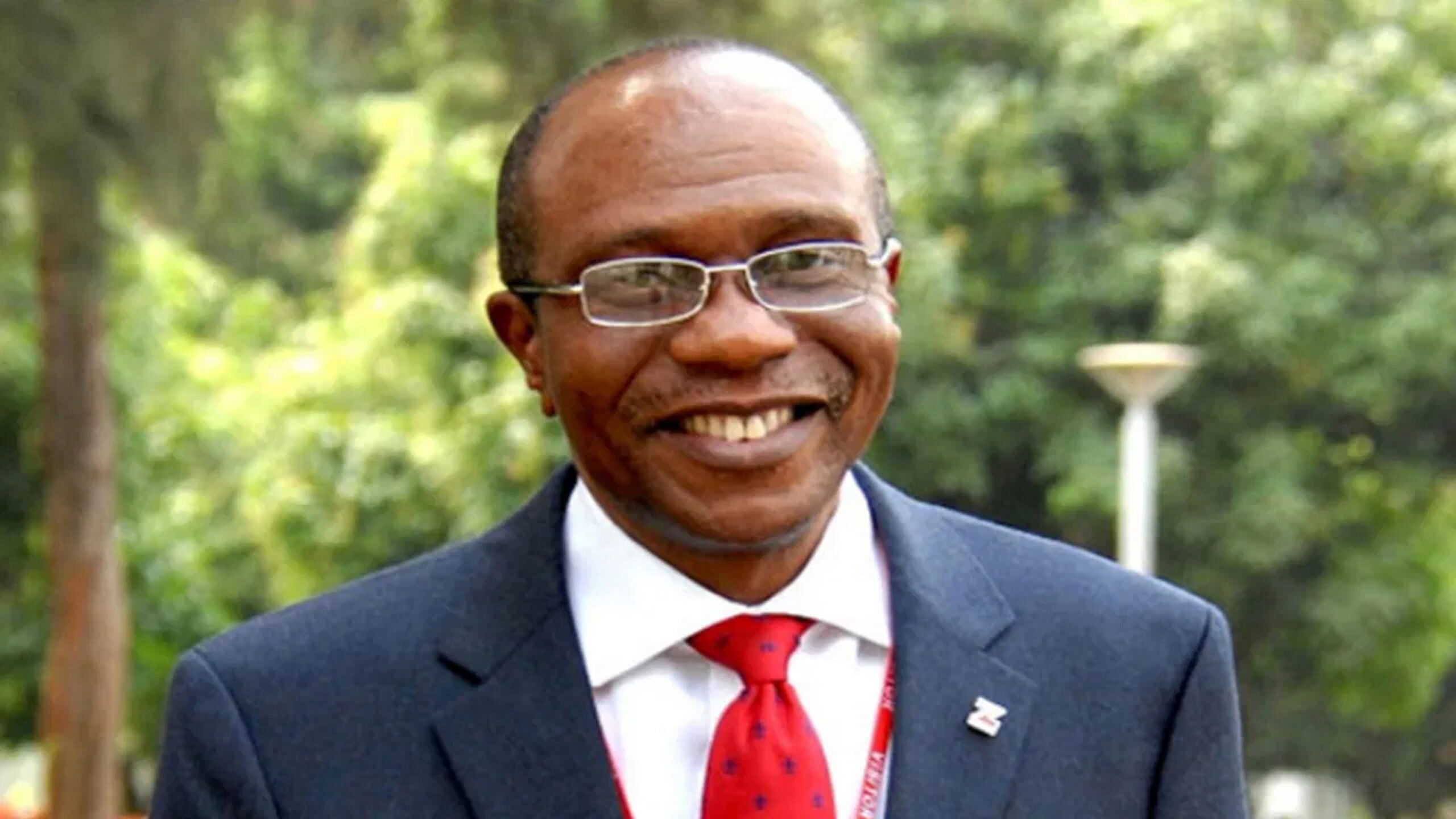Economic Diversification: Emefiele Woos WTO, seeks help to reset Nigeria’s economy
The Governor, Central Bank of Nigeria (CBN), Mr Godwin Emefiele, has said Nigeria needs to be given a chance to reset and diversify its economy, just as he reiterated the determination of the CBN to address identified deficiencies in the Nigerian economy. He stated this in Abuja recently when he played host to the Director-General […]

Governor, CBN, Mr. Godwin Emefiele
The Governor, Central Bank of Nigeria (CBN), Mr Godwin Emefiele, has said Nigeria needs to be given a chance to reset and diversify its economy, just as he reiterated the determination of the CBN to address identified deficiencies in the Nigerian economy.
He stated this in Abuja recently when he played host to the Director-General of the World Trade Organisation (WTO), Dr Ngozi Okonjo-Iweala at the Bank’s headquarters.
- 2023 presidency: Why PDP panel de-emphasised zoning – BoT member
- Tuberculosis: Study assesses infection risks among health workers in HIV clinics
Mr Emefiele, who congratulated Dr Okonjo-Iweala on her new position, said her emergence as the Director-General of the WTO was in recognition of Nigeria as the largest economy and most populated country in Africa. He noted that Nigeria, with an estimated population of over 200 million, remained a major player in global trade.
The Governor acknowledged that Nigeria needs help to achieve her goals in the areas of trade and export finance logistics, stressing that Nigeria’s stance on trade was necessitated by the drive to protect local industries to create jobs and employment as well as create an enabling environment for them to live meaning lives.
Continuing, the Governor cited the provision of stimulus and interventions packages, restructuring of loans and the reduction of interest rates on loans as part of the Bank’s response towards ameliorating the impact of the Coronavirus pandemic on Nigerian businesses. He added that through a partnership with the private sector, the Coalition against COVID-19, CACOVID raised about N40 billion to support the efforts of the Government to combat the pandemic in Nigeria.
While expressing the Bank’s willingness to work with the WTO, he disclosed that the CBN was determined to address the inefficiencies that led to the closure of pharmaceutical companies and other businesses that hitherto operated in the country.
With the establishment of the Infrastructure Corporation of Nigeria Limited (InfraCorp), Mr Emefiele expressed optimism that the infrastructural deficits in the country would be addressed coupled with an improvement in the country’s ease of doing business index.
In her response, the visiting WTO DG, Dr Ngozi Okonjo-Iweala, commended the CBN Governor and his team for their assistance to the country towards receiving the first set of doses of the COVID-19 vaccines with another 12 million doses to follow.
Dr Okonjo-Iweala said the COVID-19 pandemic presented Nigeria with an opportunity to change the narrative of its pharmaceutical industry. While expressing concern over statistics from the Economic Commission on Africa, which indicate that the continent imports over 90% of its pharmaceutical needs, she urged Nigeria to take advantage of the African Continental Free Trade Area (ACFTA) and a population of over 1.3 billion people, to enhance its trade opportunities. She urged the creation of a conducive environment as Nigeria had enough talent and capacity to attract investments to the pharmaceutical sector to create jobs for the teeming population.
She also called for an urgent transition of Nigeria’s economy from a fossil fuel-based economy to one that is dependent on other sources of revenue and job creation. She equally stressed the need for Nigeria to urgently improve its trade logistics index as well as the quality of its exports.
The WTO leader urged the country to take advantage of the WTO trade remedies, which can, without placing a ban or restrictions on any sector, help protect local industries against dumping and cheap imports among others.
In his remarks, the Ambassador of Barbados to the UN Institutions and WTO, Ambassador Chad Blackman noted that Nigeria, being the biggest economy and having the largest population in Africa, had a comparative advantage in terms of what it could achieve.
